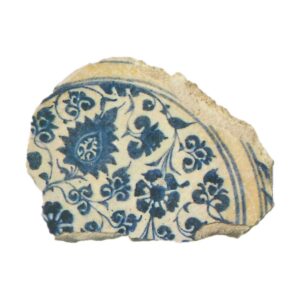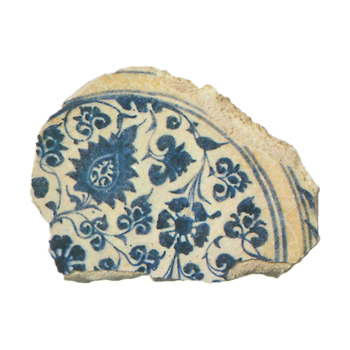
The oldest city in the Islamic period, al-Fustāt, the predecessor of Cairo, Egypt, was built in 642 and burned to the ground in 1168, leaving it in ruins. Excavation of the ruins began in 1912, and among the finds were approximately 600,000 ceramic shards dating from the 7th and 8th centuries, which were entrusted to our country for investigation. Japan was entrusted with the task of surveying the pottery, and a survey team was sent from Japan twice, in 1964 and 1966. Of course, the largest number of pottery shards are from Egypt, but they are also from Syria, Turkey, Cyprus, Italy, Spain, North Africa, Mesopotamia, Iran, Thailand, Annan, China, and Japan’s Imari ceramics, and are considered a treasure house of world ceramic research. In particular, Chinese ceramic shards cover the period from the Tang dynasty in the 8th and 9th centuries to the Qing dynasty in the 16th and 7th centuries, and include almost all of the best Chinese ceramics of the period. (The Way of Ceramics)



